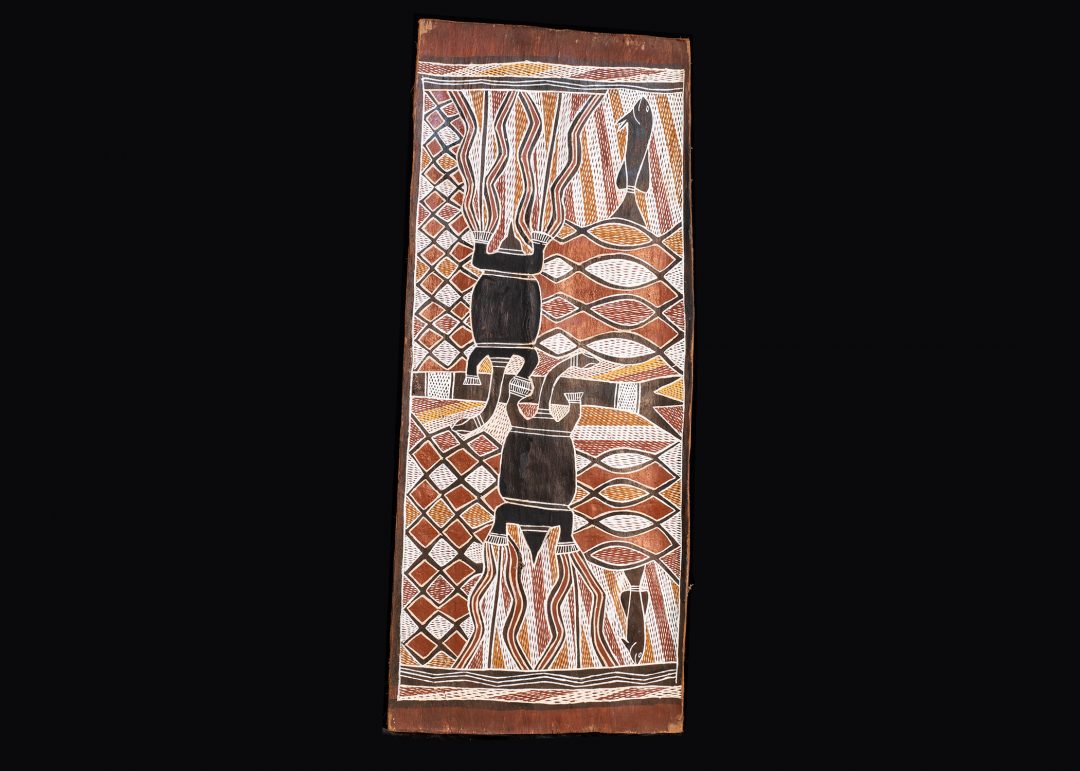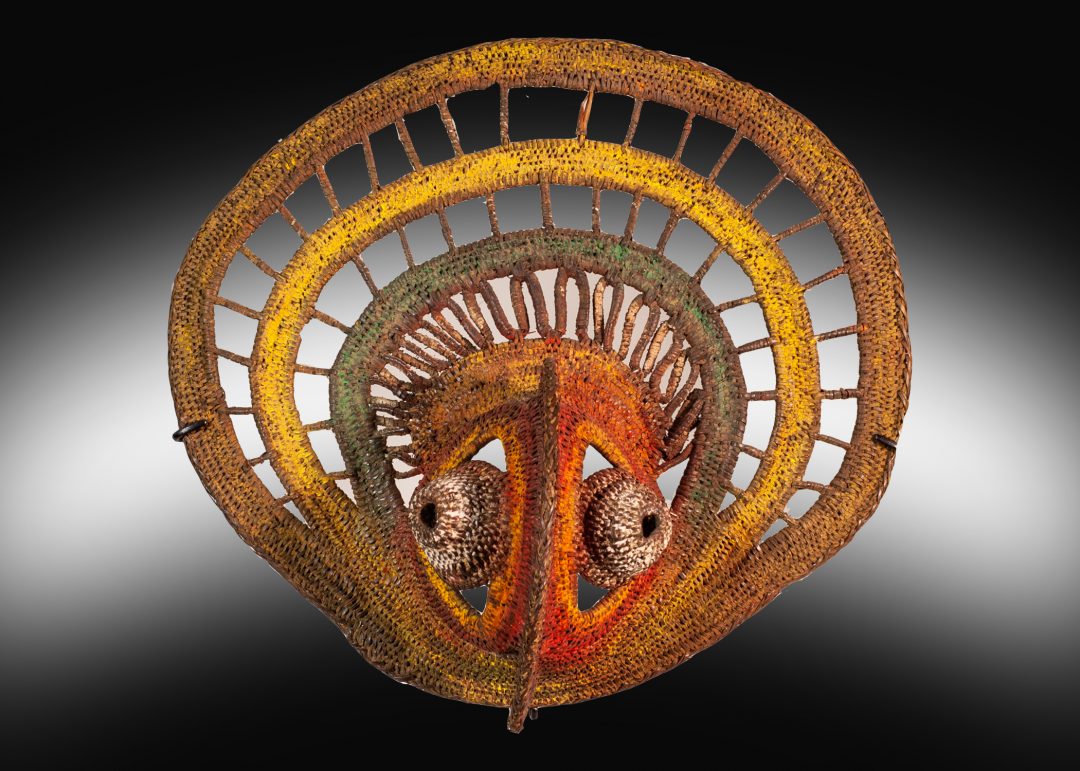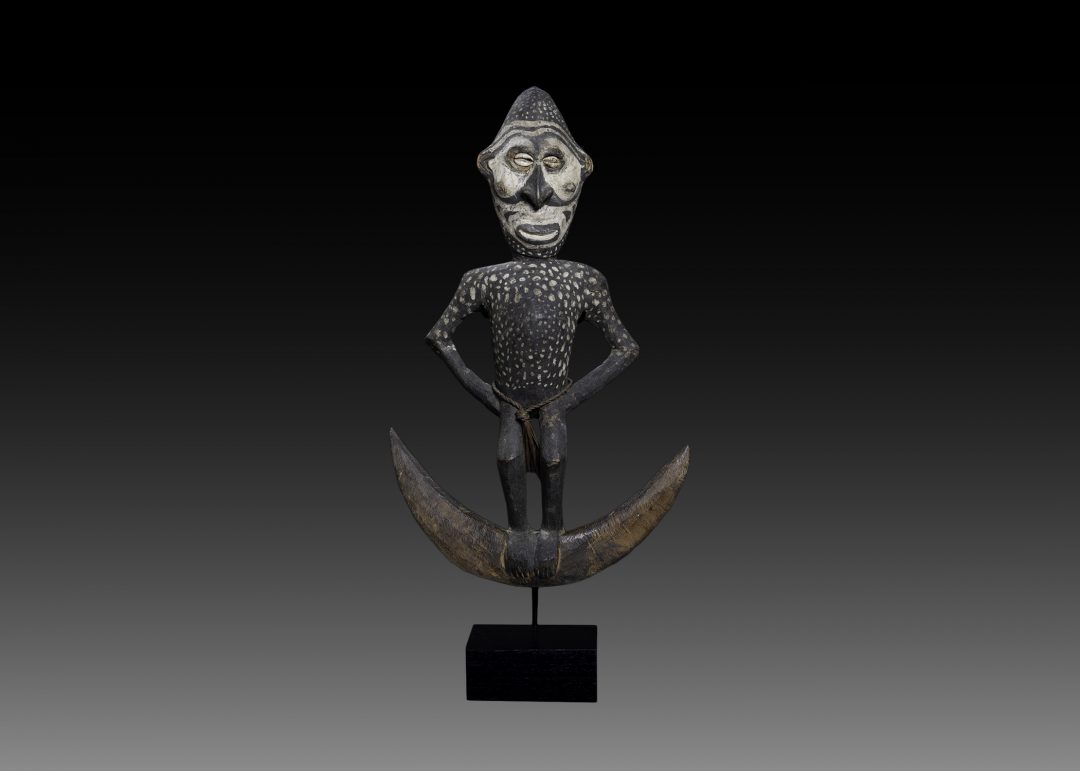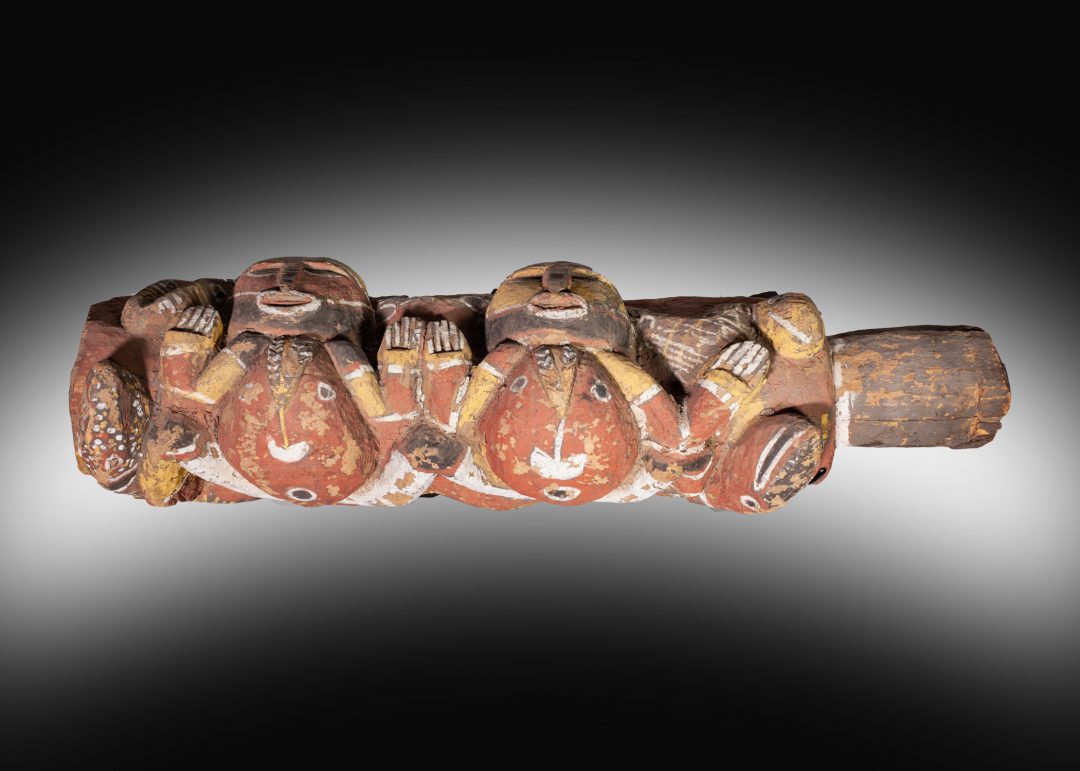Early Aboriginal Didgeridoo
-
TitleEarly Aboriginal Didgeridoo
-
LocationNorth East Arnhem Land, Northern Territory
-
Date1962
- Size165cm (L)
-
PricePrice on application
A long Aboriginal didgeridoo, collected in 1962 from Central Arnhem Land by James Davidson
The didgeridoo is painted with natural earth pigments and is in good condition for its age with some pigment loss. Didgeridoos like this example were used in ceremony. Once the ceremonies were complete, the items were no longer required and were either discarded or traded. This is a collectors item that should be displayed rather than played. Overall length 165cm
The didgeridoo also spelt didjeridu is a wind instrument. The didgeridoo was developed by Aboriginal peoples of northern Australia, likely within the last 1,000 years, and is now in use around the world. The name for the Yolngu instrument is the yiḏaki (yidaki), or more recently by some, mandapul; in west Arnhem Land it is known as a mago.
A long Aboriginal didgeridoo, collected in 1962 from Central Arnhem Land by James Davidson
The didgeridoo is painted with natural earth pigments and is in good condition for its age with some pigment loss. Didgeridoos like this example were used in ceremony. Once the ceremonies were complete, the items were no longer required and were either discarded or traded. This is a collectors item that should be displayed rather than played. Overall length 165cm
The didgeridoo also spelt didjeridu is a wind instrument. The didgeridoo was developed by Aboriginal peoples of northern Australia, likely within the last 1,000 years, and is now in use around the world. The name for the Yolngu instrument is the yiḏaki (yidaki), or more recently by some, mandapul; in west Arnhem Land it is known as a mago.











